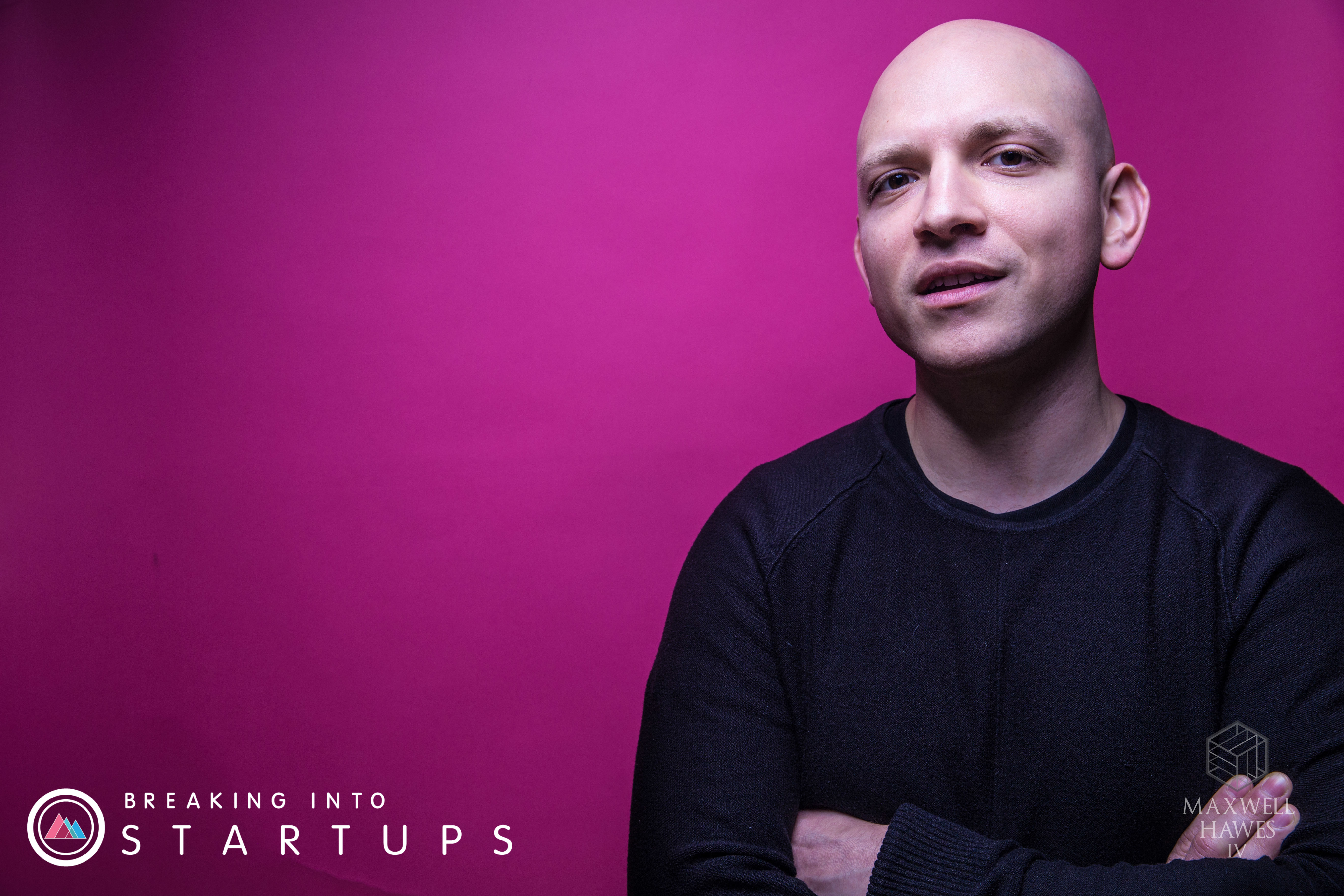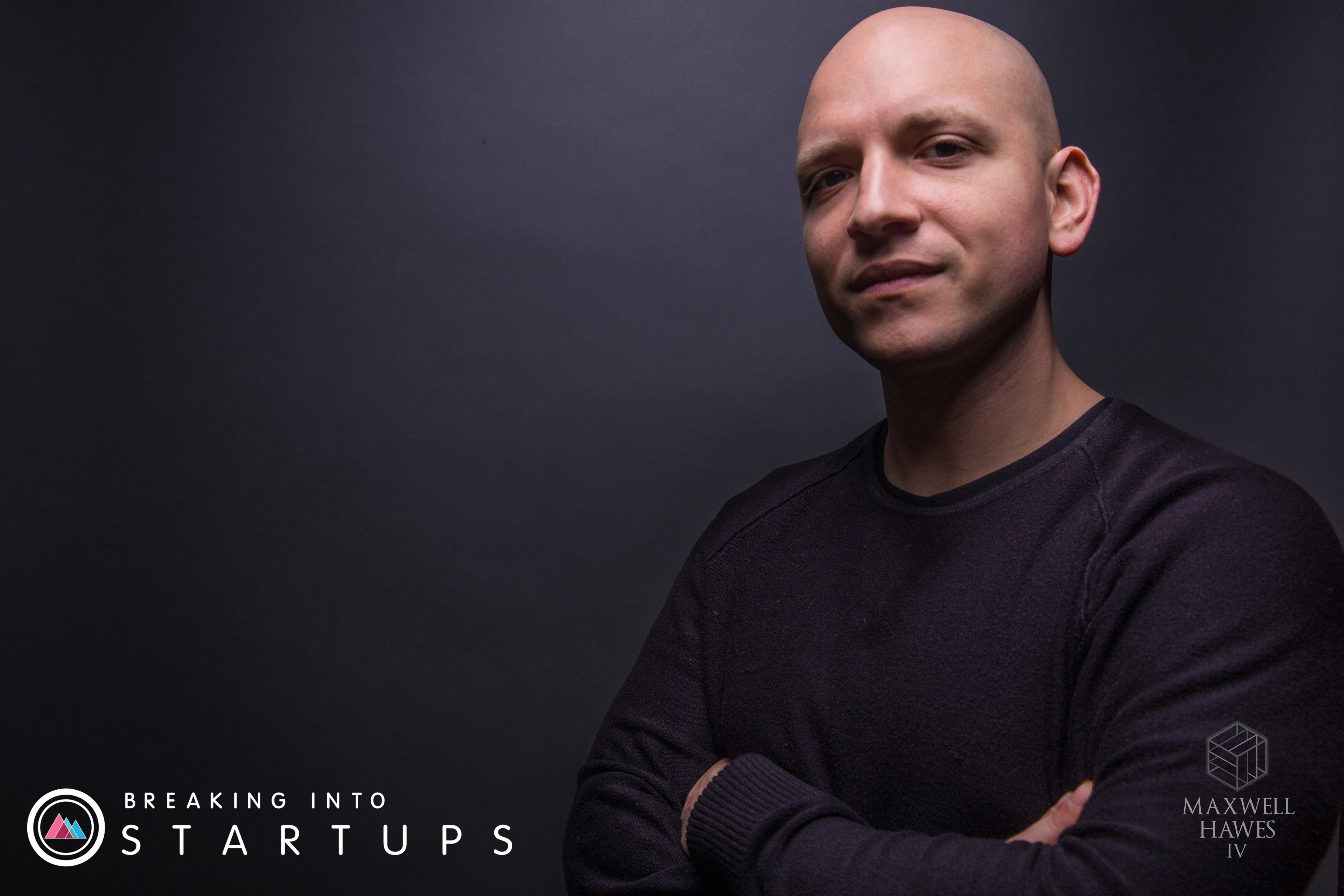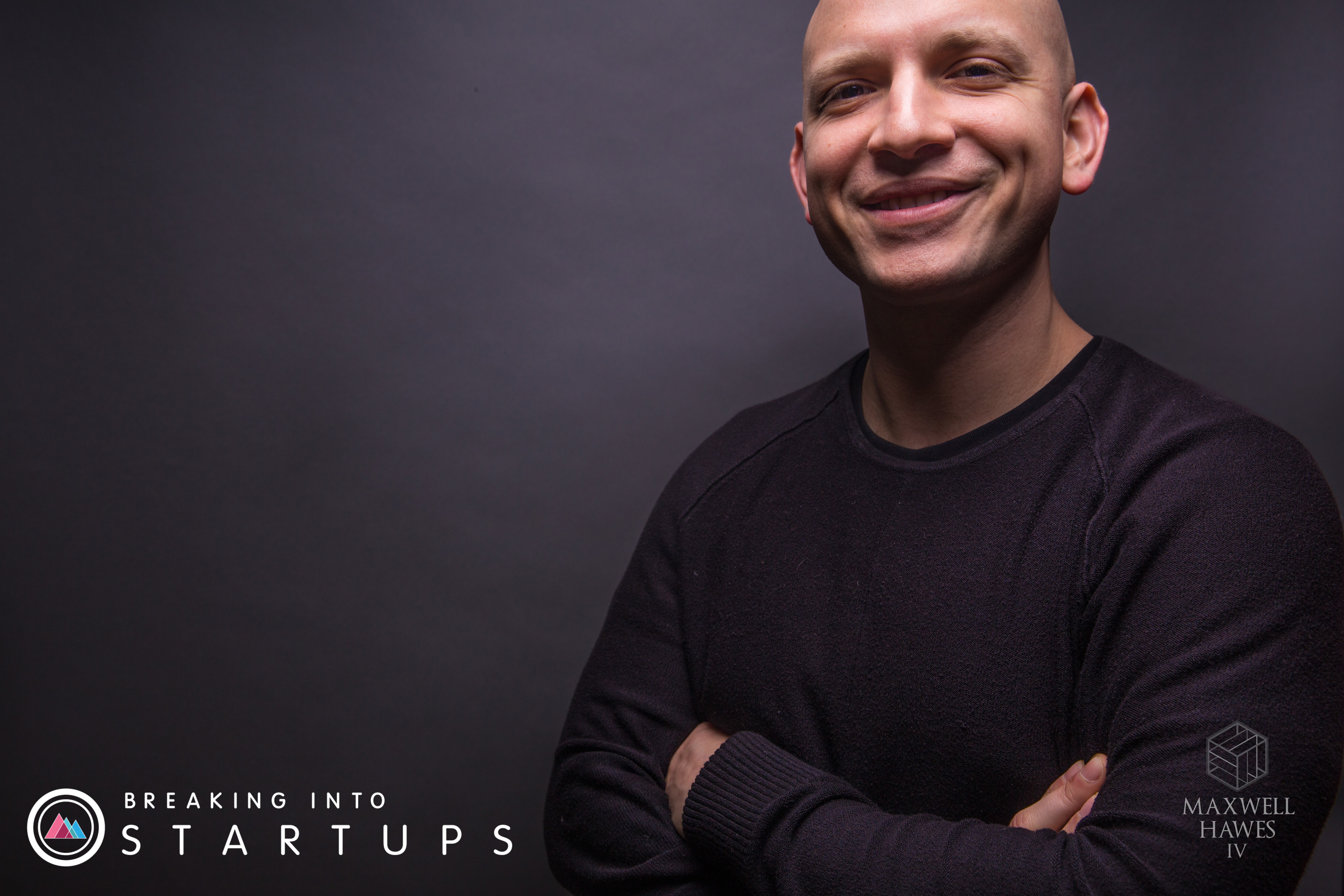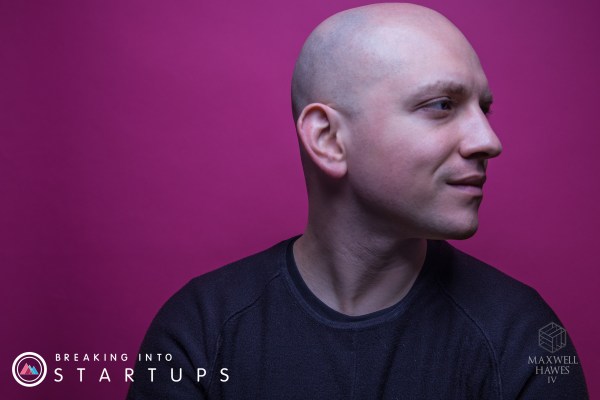Silicon Valley has very few executives that have a LatinX background, and today’s Breaking Into Startups Episode features a young Dominican from vice president of sales for a company called Hustle.
Hustle is a venture-backed, peer-to-peer text messaging platform.
Hustle is also a word that people use to describe selling or promoting energetically and Ysiad’s strategies and tactics took the company from $0 to $5 million in booked revenue in eighteen months.
As a Dominican who grew up on welfare in the Bronx, he is sharing this story about an aspect of his life that few people know about in an effort to inspire those who grew up like him — those without the privileges that most people who work for startups take for granted.
Ysiad and I were roommates at Agape and this episode goes into detail about how a strong sales organization is structured at the seed stage, the types of candidates that get hired, sales fundamentals, compensation, struggles with background checks, second chances, and more.
Family and the Importance of Education:
Ysiad’s mother immigrated as a teenager from the Dominican Republic, raised him as a single parent and his first language was Spanish.
He learned English in elementary school and was fortunate enough to earn a spot in a program called Prep for Prep, which in turn got him a scholarship to Horace Mann, a private school in New York City.
He got into the University of Pennsylvania on a full Annenberg Scholarship, but quickly dropped out due to a couple of factors:
- Impatience. He did not want to wait until completing college to make money. And he realized that he had other opportunities — like starting a real estate brokerage in New York City. Nobody was using Craigslist yet to advertise property in that market, so he used that channel to build a business.
- He was on probation, and he wanted to reduce his risk of being sent to prison for participating in the normal activities of someone engaging in a social life at an Ivy League university.
Wait, probation and prison?
Yea, that might surprise anyone who arrived here from a Google search, Twitter, or a blog post about product updates, so let’s back up a few years.
Getting to Horace Mann was both a source of pride and embarrassment.
Pride: It is one of the best high schools in the United States and it was a privilege to go there.
Embarrassment: His scholarship didn’t cover school lunches or the school bus.
Fighting Starvation By Any Means Necessary
Ysiad wished he could have worked to pay for his own lunch, but he was too young for work papers, so he couldn’t even get a job after school.
With the deck stacked against him, he did all that he could in order to keep his head up and not fall into a victim mentality.
Getting to school alone presented its own challenges because there was a gang war going on in the late 90’s in NYC and he had to cross several of them on his way to class.
He used a bicycle until the bicycle was stolen. After that he ran to school with his backpack. His cover story was that I needed to make weight for wrestling.
Even though Ysiad is Dominican, gangs would target him for initiations because he looked white and after a number of physical altercations, he got worn down.
For protection and respect, he decided to start his own crew and built a reputation in the neighborhood. Things escalated.

Bad Decisions and Their Consequences
While he had the goal of earning enough money so his mother and sisters wouldn’t have to steal, he was comfortable doing whatever he had to do in order to put food on the table.
He sold illegal cable boxes to his classmates, stole from the cafeteria, and even from many of his classmates. Stealing from his peers cultivated a deeper shame while making it difficult to create trusting friendships.
By age 15, he found himself in a management position in a criminal enterprise. Fast forward a bit, and the result of this was him pleading guilty to robbery in the first degree, possession of stolen property, and assault with a deadly weapon.
That’s how he got on probation from the ages of 16 to 21. He considers himself lucky because things could have been a lot worse.
Navigating the criminal justice system at such a young age affected his life in many ways.
First, he caused his family stress and shame.
Second, he feared that if people found out what he had done, the truth would inhibit him from achieving his goals of making something of himself, financially supporting his family, and getting out of the Bronx.
Secrets and Reflection on Past Actions
Ysiad figured out how to keep his arrest, subsequent plea, and probation status a secret from his classmates and the administration at his school. If they had found out, they definitely would have expelled him.
By then he was old enough to work so he quit the after-school sports teams he was a part of, found a computer on a train, and got a job as a computer programmer (more detail on that in the podcast).
From that point forward, he would pay for his own food instead of stealing it.
He lied on his college applications saying he hadn’t been arrested, and was accepted into a number of Ivy League universities with full scholarships.
He accepted a spot at the University of Pennsylvania.
In retrospect, he is 100% confident that he could have found a way to buy food and commute to school safely without engaging in criminal activity.
But he also empathizes with his 15-year-old self. Being an at-risk youth means not always having the privilege and perspective to think strategically.

The 17 Year-Old Hustle: Probation and Dropping Out of College
Attending UPenn required updates to Ysiad’s Probation Officer on his whereabouts and he was not allowed to change states without getting permission ahead of time.
He also had to stay out of trouble completely and a single probation violation not only risked further shame to his family, but would also mean 12 or more years of incarceration at an adult facility.
The location requirement made it impossible for him to join a sports team or club that interacted with other universities. Staying out of trouble meant that he could not safely participate in the sorts of social activities his peers were a part of. And he certainly did not want to explain why.
So he dropped out of college and started some businesses — a t-shirt company, household moving, home repairs, and later a fair-trade importing company.
Each one was a little more successful than the last. As they were all self-funded, he had to learn to bootstrap and inspire people to work with him despite not having money to pay fixed salaries. That typically meant hiring people of non-traditional backgrounds, helping them quickly grow to the responsibilities that needed to be met, and working on projects that generated cash-flow quickly enough to pay everyone.
Somewhere along the line a former employee introduced him to a friend of his who had a lucrative career as a consultant for hedge funds. He started staying up late reading financial books, brought his computer programming skills up to a professional level, got an internship at a hedge fund, and then leveraged that position to get a formal interview with that friend of a friend where he convinced him to take a chance on him.
The company was still small enough that it did not conduct background checks, so shortly thereafter, Ysiad began consulting.
Clients started asking for Ysiad by name, and there was more work than the company could handle.
The next challenge was to build a successful team.
Ysiad’s previous experience hiring people of nontraditional backgrounds proved very helpful because his talent pool was wider and he was able to hire people quicker than their competitors.
Everything was going well until the company grew to approximately 30 people and started running background checks. Rather than tell the partners of the firm about his past — knowing that they would be required to fire him and tell his customers — he quit before filling out the form agreeing to a background check.

Finding Happiness Through Hiding From Background Checks
Ysiad was emotionally shattered.
He had finally reached a different socioeconomic status, but had to give it up because of his struggles with background checks.
Ysiad did what a lot of young rich people do when they need to process things and take time off — he went into nature, bicycled a thousand miles from Boston to Ann Arbor, took an international trip (moving to India for a year and a half), and did some feel-good, yet light hearted charity work where he and a friend came up with the idea of “The International Day of Happiness.”
That idea led to a resolution by the United Nations, and The International Day of Happiness is now on March 20th every year.
After all of that reflection, he decided to move to San Francisco, where he thought organizations might be less likely to run background checks on their employees.
The Purpose Driven Organizer
In San Francisco, he lived in house called Agape with Cory Rae Shaw — Hustle’s first graphic designer — and Perry Rosenstein — one of Hustle’s founders.
Perry was always talking about politics, but Ysiad had always been pretty skeptical of politics.
When Ysiad was growing up, politicians and activists from outside of his community would approach his neighborhood and tell them that if they wanted change, they needed to vote.
Their messages sounded great, but Ysiad learned to be wary of politicians and the campaign workers who worked to get them elected because he felt that most of them were full of empty promises that led to zero results or things that were contradictory to their initial message.
As Perry and Ysiad continued their conversations, Perry kept saying that while many of Ysiad’s concerns were true, Hustle’s platform was not only being used by organizers reaching LatinX and other underserved communities in ways that had never been done, but also helping them build power leading to actual results.
When Ysiad saw the ~90%+ open rates, ~30–50% engagement from Perry’s initial groups, he thought about other use cases in criminal justice from his interactions with his probation officers, ways to speak to his neighborhood through community leaders they trusted, and immediately agreed to do some consulting to help with sales and marketing.
New Beginnings
Ysiad soon saw that the work Hustle was doing changed the ways that he thought about politics and activism.
When he first joined Hustle, he was focused on political issues like immigration reform and for the cost of less than a single postcard, he was able to bridge the digital divide by helping campaign organizers send personalized texts to people across targeted groups.
If the organizers wanted to reach people like Ysiad’s mom, who primarily speaks Spanish, they could communicate with them by text in their constituents’ preferred language.
This allowed campaigns to develop appropriate messaging in a variety of languages to reach everyone in a comfortable and respectful way.
Ysiad helped organizers use Hustle to send over 60 million messages to 12 million people and got the platform into the hands of reputable advocacy groups, non-profits, and labor unions with phenomenal results
Hustle is quickly expanding its strong position in politics and labor, but is also working on expanding verticals and empowering leaders in education, faith communities, healthcare, call centers, and more.
As someone in an executive position at a fast growing startup, Ysiad now feels the responsibility to help people that have been struggling to overcome decisions they may have made in their past that affect their background in a negative way.
Maybe they have a criminal record like he does, or maybe they don’t look or sound like what people expect them to. Whatever their story is, Ysiad is a Dominican from the Bronx that can’t knock the hustle when he sees it.
Also, make sure you subscribe to the Breaking Into Startups Podcast on iTunes. If you’re looking for where to start, make sure you check out the Breaking Into Startups 5-Step Challenge and the Breaking Into Startups Resource Page.
